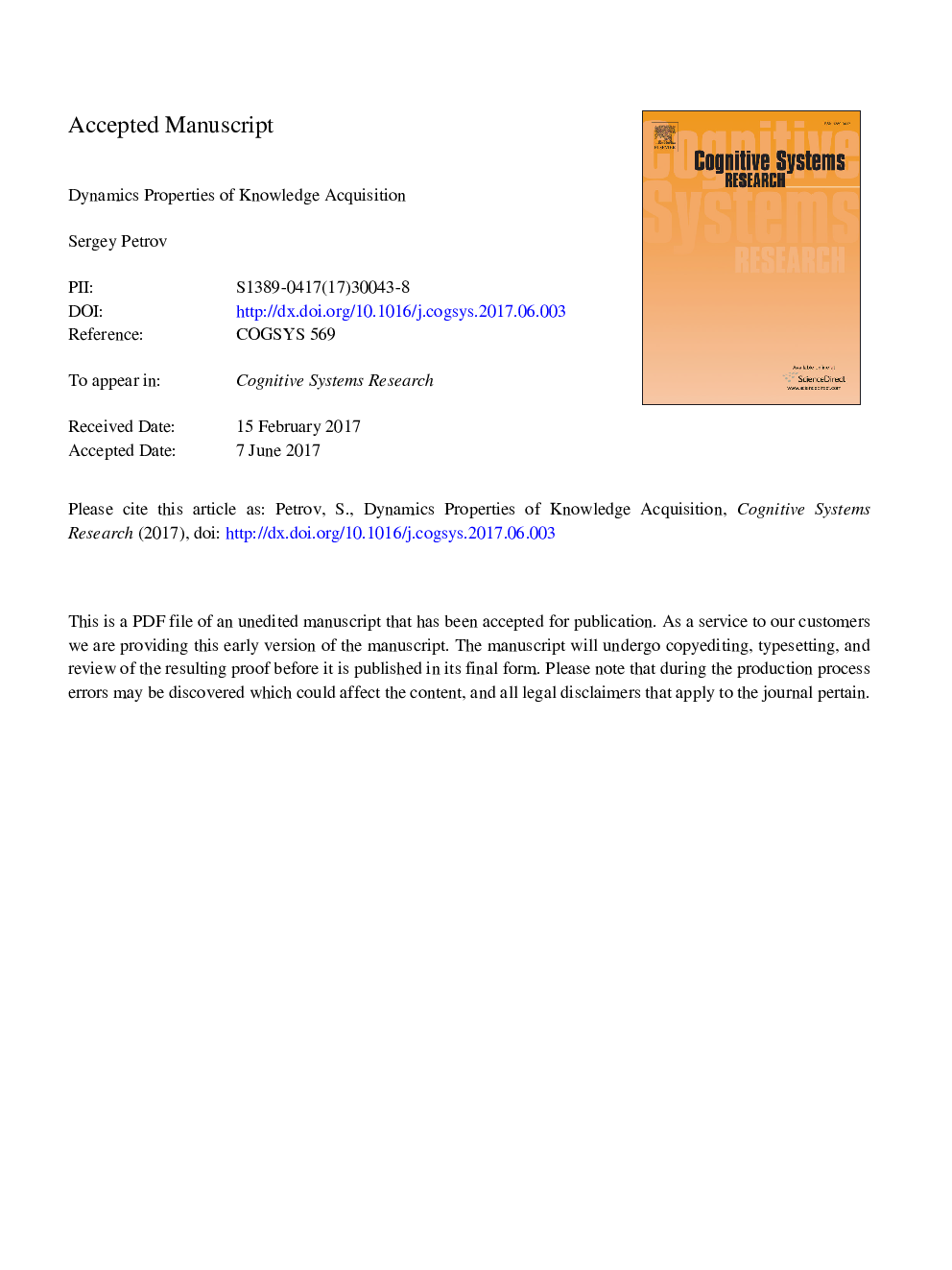| Article ID | Journal | Published Year | Pages | File Type |
|---|---|---|---|---|
| 4942323 | Cognitive Systems Research | 2018 | 6 Pages |
Abstract
Repeated counteraction of current knowledge and reality observation generates new knowledge and can be viewed as a dynamic process. When observed objects are not results of human activity, the dynamics results in acquisition of new knowledge, usually as a refinement of the existing one. Otherwise, adjustment between incomplete knowledge and reality can be a result of intentional modification of objects in question, as it happens in design of any artifact. In this case convergence of the process is questionable, for example, it may imply the end of the technical progress. In worst case scenario, the same computable criteria used simultaneously to modify objects and evaluate the result quality causing drift from an established goal and devaluation of acquired knowledge.
Related Topics
Physical Sciences and Engineering
Computer Science
Artificial Intelligence
Authors
Sergey Petrov,
